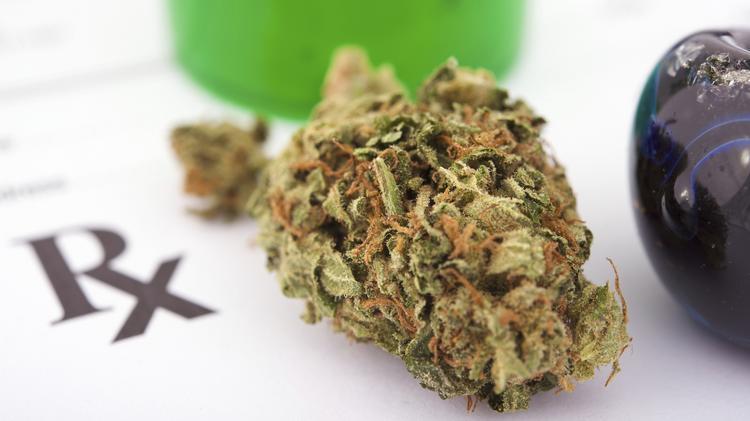Doctor’s face new rules for smokable medical marijuana
5 min read
TALLAHASSEE, Florida (The News Service of Florida) – New rules went into effect last week that set out the do’s and don’ts for doctors when certifying patients to smoke medical marijuana.
Patients who are certified or recertified to smoking medical marijuana will be required to sign a new standardized informed consent form starting last Tuesday. This form provides, for the first time, information about the dangers of smoking near oxygen tanks and advises patients to check their marijuana supplies for mold.
In addition, doctors must adhere to newly adopted practice standards, which for the first time define what doctors must do to certify patients and what information must be included in the patient’s medical records.
However, the state medical marijuana office doesn’t have the new ones on its website standardized declaration of consent. In addition, the new medical practice guidelines will not be published on the Board of Medicine or Board of Osteopathic Medicine websites.
In addition, national medical groups have not announced to their members that the new rules are in effect.
Doctors who fail to adhere to the new requirements may face disciplinary action by their state authorities if complaints are made and found to be legitimate.
Joel Rose, a Tampa doctor who played a key role in drafting the new regulations, admitted that the regulations were tacitly enforced but said he wanted to “turn the volume up” and let doctors know.
“They always say ignorance of the law is no excuse, but the word needs to be known,” Rose told The News Service of Florida.
The regulations were drawn up by the Joint Committee on Medical Marijuana, consisting of members of the Board of Medicine and the Board of Osteopathic Medicine. Rose served on the Board of Osteopathic Medicine for 14 years before his term expired.
While members of the joint committee unanimously voted for the rules, Rose said the job seemed daunting at first. The committee had no template to follow and some members were reluctant to adopt regulations that might encourage smoking.
Jorge J. Lopez, a Maitland doctor and member of the committee, said that marijuana smoking can be addicting and that labeling marijuana as medicine and establishing rules to regulate it are challenging.
“Personally, I believe what we’re doing is more of a workaround than decriminalizing recreational marijuana,” he said during a meeting this spring. “But that fell into our lap and we have to work with it.”
Rose said he understood such concerns, but said the goal is to create rules that educate the public about the risks and potential benefits of smoking marijuana and lay the foundation for patient safety.
“If you’re not okay with this, you don’t have to be a qualified doctor ordering medical marijuana for patients,” said Rose. “I kind of thought in my head it’s like an abortion. The state allows abortions, and many doctors disagree and will not perform abortions. So I saw it this way: What can we do to best serve the public and to fulfill the mandate of the legislature? “
Florida voters passed a constitutional amendment in 2016 that largely legalized medical marijuana, but lawmakers initially didn’t allow smokable forms of cannabis.
In 2019, lawmakers ordered medical bodies to enact rules by July 1, 2021 that doctors must follow when ordering smokable marijuana for patients. The mandate was part of a law advocated by Governor Ron DeSantis that allowed patients to smoke medical marijuana.
Before the new rules came into effect, non-incurable patients who were certified to smoke medical marijuana were required to sign informed consent forms. But the new form warns patients not to smoke medical marijuana or other flammable products near oxygen tanks, as doing so could cause a fire or explosion.
Also, the new consent form advises patients with smoking certificates to check their marijuana supplies, as flowers can become infected with mold or mildew, which pose a health risk.
The new practice guidelines make it clear that physicians must personally conduct a comprehensive assessment of patients, including family and social history “with an emphasis on addictions and mental health,” and document the information in patients’ medical records.
The practice standards also require doctors to document in the medical record whether the patient is pregnant and the results of diagnostic therapy or laboratory work if they are performed by the qualified doctors or if the qualified doctors receive them from other doctors. While the state has required doctors to review a prescription drug database before ordering marijuana for patients, the new regulations require doctors to record in patients’ medical records that they have reviewed the database.
Medical marijuana lobbyist Ron Watson said he thought the new rules were sensible.
“They weren’t as bad as I thought,” said Watson. “I was concerned that the (rules) would be a way to quit smoking marijuana.”
A report from 2021 shows that medical marijuana use in Florida continues to grow, and medical marijuana smoking is becoming increasingly popular.
The report released by the Board of Medicine and Board of Osteopathic Medicine shows that 95 percent of the 443,888 patients who had medical marijuana certification between October 1, 2019 and September 30, 2020 had at least one order for smokable marijuana.
In addition, 85 percent of doctors who certified patients in marijuana during the 12 month period placed orders for smokable marijuana.
A report from last year showed that 65 percent of doctors who had certified marijuana had written orders for smokable marijuana. However, the 2020 report was based on data between March 18, 2019 and September 30, 2019. The 2021 report also showed a whopping increase in the number of patients eligible for medical marijuana. The numbers rose from 291,865 on October 1, 2019 to 443,888 on September 30, 2020.
Rose said his goal was to create sensible rules that would avoid administrative challenges and that doctors would find workable.
“The next step is to see how it works with the community that orders medical marijuana for patients,” said Rose.





 Protected by Patchstack
Protected by Patchstack